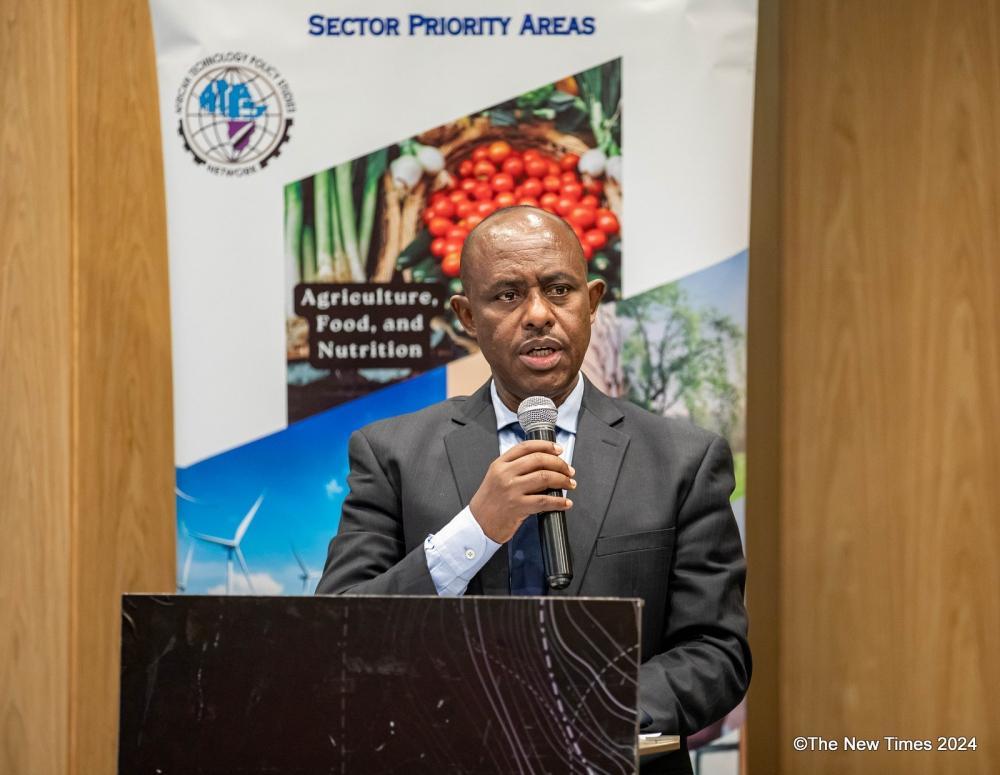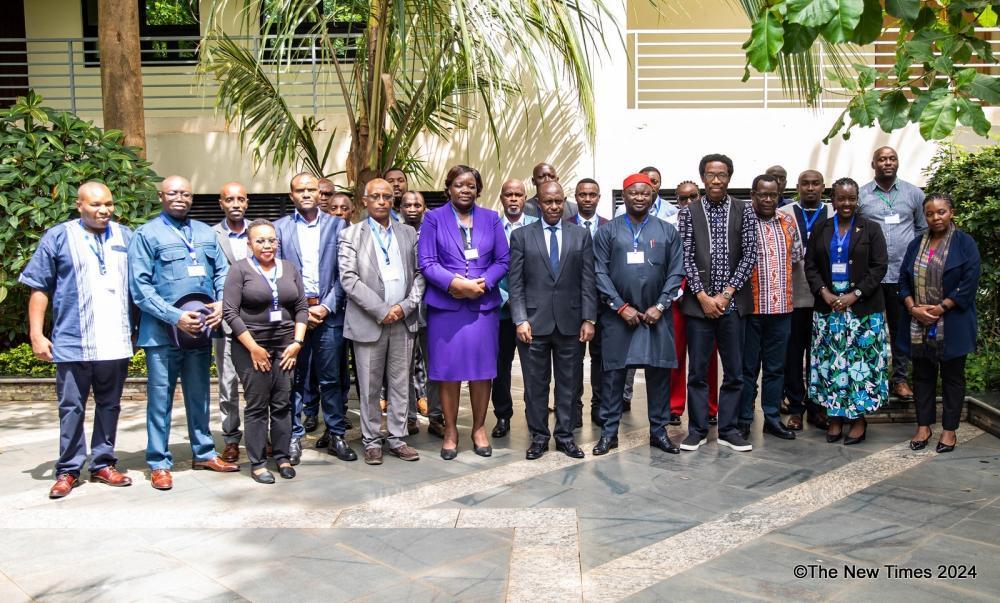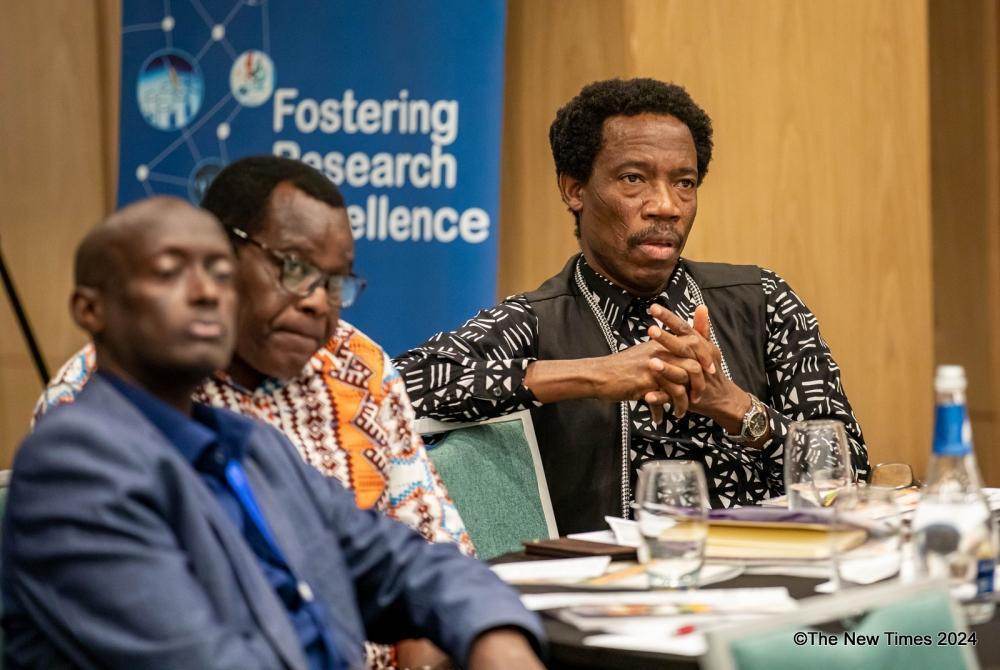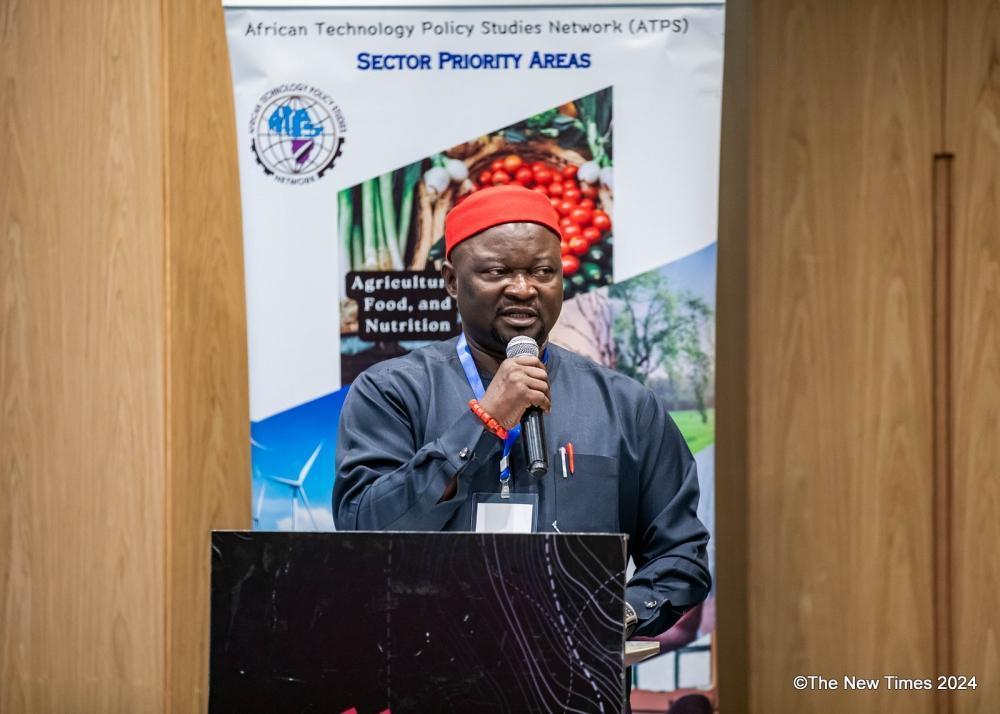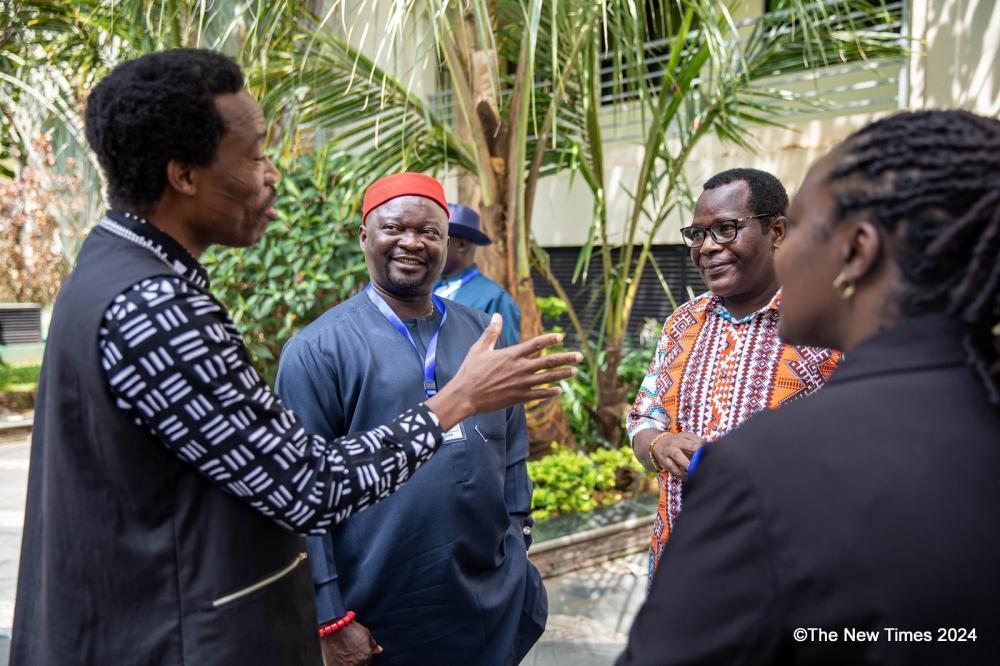Africa-Press – Namibia. Africa is characterised as the youngest and fastest-growing continent globally. By 2030, the labour force in Africa is projected to grow substantially, accommodating around 375 million young individuals.
Additionally, by 2035, Africa is expected to have more young people entering the workforce annually than the rest of the world combined, driven largely by population growth.
Currently, the African Youth Employment Clock indicates a concerning scenario in Rwanda, where 28.5 per cent of the youth population is inactive in the labour market, and an additional 6.6 per cent is officially unemployed. These figures are anticipated to rise alongside population increases.
Participants pose for a group photo after the opening session in Kigali on Monday, April 29
Acknowledging the importance of this demographic shift, experts gathered in Kigali on Monday, April 29 for a stakeholder engagement led by the African Technology Policy Studies Network (ATPS). Composed of researchers, policymakers, and industry leaders, ATPS advocates for harnessing Science, Technology, and Innovation (STI) to drive Africa’s development agenda.
Dr Eugene Mutimura, Executive Secretary of Rwanda’s National Council for Science and Technology (NCST), emphasised the potential for Rwanda to significantly boost youth employment rates through Science, Technology, and Innovation (STI) initiatives.
He stressed the importance of enhancing investments in education, particularly in science and technology fields, to develop a skilled youth workforce ready for the job market. Mutimura also highlighted the need for continued digitisation efforts and the enhancement of policies and frameworks to support entrepreneurship.
According to Dr. Mutimura, “The Government of Rwanda has prioritised Information Communication Technology (ICT) and STI as essential drivers to achieve development goals in key areas such as creating high-value and competitive jobs for youth, developing critical sectors, enhancing modern infrastructure, fostering productive livelihoods, and contributing positively to international peace.”
Delegates follow a presentation during a stakeholder engagement led by the African Technology Policy Studies Network (ATPS) in Kigali on Monday, April 29. Dan Gatsinzi
Under NCST’s management, the National Research and Innovation Fund (NRIF) has funded close to 120 research and innovation projects, with an investment of over Rwf6.5 billion since its inception. Dr Mutimura highlighted that engaging with the African Technology Policy Studies Network (ATPS) serves as a form of policy advocacy. He noted that both institutions collaborate with governmental bodies and other stakeholders to formulate conducive policies and regulations for expanding the STI sector and creating a supportive environment for youth employment.
Outlook for job opportunities among African youth
ATPS and its partners, the MasterCard Foundation and the African Export-Import Bank (Afreximbank), are aligning efforts to unlock youth employability through technological innovation. By 2030, over 300 million African youth are projected to face unemployment. Mastercard aims to generate 30 million new jobs by the same year, while Afreximbank aims to leverage intra-Africa trade for job creation.
Nicholas Ozor, Executive Director of the African Technology Policy Studies Network (ATPS), highlighted the challenges Rwanda faces with significant youth unemployment in an economy largely reliant on the informal sector. He noted the government’s responses over the past two decades, which have focused on transforming policies and establishing institutions to diversify the economy.
Nicholas Ozor, Executive Director of the African Technology Policy Studies Network (ATPS), speaks at the meeting
Ozor also highlighted the persistent low educational attainment in the country, posing a major obstacle for youth to acquire skills necessary for a rapidly evolving economy. He recommended, “To address this, there should be a commitment to enhance institutional capacities and raise awareness among businesses regarding Science, Technology, and Innovation (STI) to foster youth training and employment in both formal and informal sectors.
“The government and stakeholders must elevate education standards through increased investment and capacity-building activities within existing institutions and businesses.”
Emphasising the importance of knowledge acquisition, Ozor said, “Increasing education levels is crucial for leveraging the potential of STI to create job opportunities and spur entrepreneurship among youth. Moreover, safeguarding the welfare of youth and women in the informal sector, integral to the rural economy’s resilience, is imperative.”
Regarding ATPS’s partnerships, Ozor explained, ‘We are collaborating with the MasterCard Foundation and Afreximbank to understand the policy and institutional landscape for technological innovation in Africa, aimed at enhancing youth employability, entrepreneurship, and job creation.”
Regarding contemporary issues, he highlighted the importance of integrating youth voices into policy-making, stating, “In certain policies, there is a notable absence of youth perspectives and a failure to mainstream youth, gender, and women, resulting in their marginalisation and disconnect from policies that could effectively address youth employment. By ensuring that youth are involved in policy discussions and decision-making processes, we can develop more effective policies that align with youth needs and contribute to job creation.”
ATPS’s additional recommendations include establishing initiatives to fund start-ups, provide mentorship, and scale up new ventures; stakeholders working closely to assess policy outcomes for policy learning and performance improvement; and enhanced cooperation and coordination between various sectoral and thematic policies and institutions to expand economic opportunities for youth.
Delegates interact at the venue after the opening session in Kigali on Monday, April 29
The meeting was attended by researchers, policymakers, and industry leaders, ATPS advocates for harnessing Science, Technology, and Innovation (STI) to drive Africa’s development agenda.
For More News And Analysis About Namibia Follow Africa-Press

